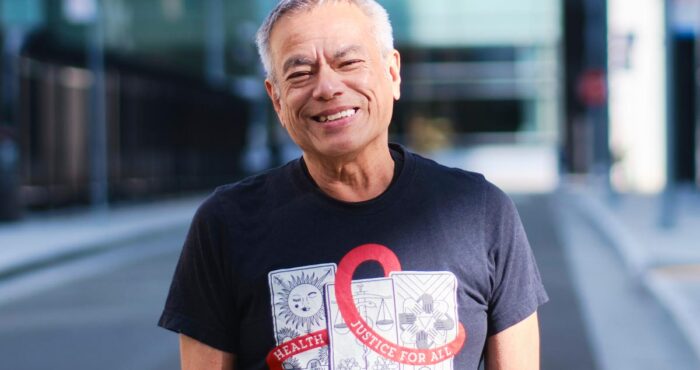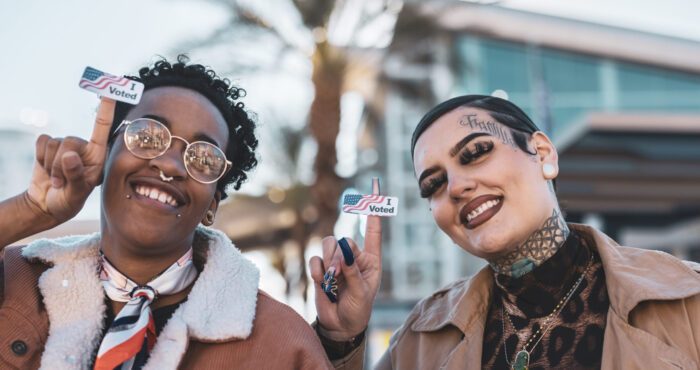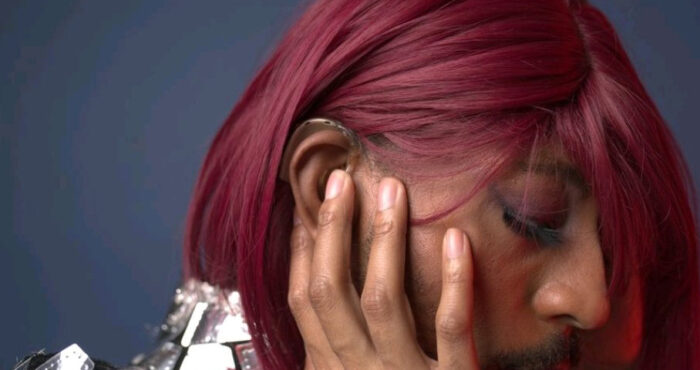Nipple clamps, feather ticklers, whips, chastity belts, and pleasure paddles. With Folsom Street Market coming up in July, and Folsom Street Fair in September, it’s time to celebrate all flavors of kink!
Only three years ago was my first time at the Folsom Street Fair, and I remember thinking about how liberating the space was for people seeking to express themselves sexually. People are out in the world just being themselves in what appeared to be a safe and consensual manner, I believed. Truly, that’s only the surface.
Truth is, the fun doesn’t come equitably to everyone. The kink community offers adventure, but can also come with re-traumatization for Black lives.
“Everything we do in kink is the real world magnified,” says Bianca Spencer, a Black Queer woman who holds the title of Miss Rubber San Francisco 2020.
I’m never surprised when I hear about how Black folks must learn about “rules of engagement” for particular spaces, events, or circumstances. I have been socialized to navigate a white-dominated world ever since I could read and write.
Growing up as a kid, there were so many rules that older Black adults had imparted on me – whether directly or indirectly – that were meant to protect me from humiliation and taunting. Don’t eat watermelon in front of white people. Don’t eat fried chicken in front of white people. And don’t eat bananas in front of white people. It’s because of long-established caricatures of Black people that paint us as the picaninny. But these rules, while coming from very real places, are also very limiting to my humanity.
So when Bianca told me some of the rules of engagement for Black lives in kink spaces, I wasn’t surprised. It’s not like when you close the bedroom door, everything that happens is now pure and free of social influence.
When it comes to sexual expression, the fears are very real and very limiting. Tropes like the Big Black Cock, the Black Buck, the Black goddess, or the jezebel exist within the kink community. Entrance to a dungeon might mean the possibility of having one of these troupes hurled at you. It’s vulnerable, it’s risky, and it could be unsafe, yet, it’s still common, Bianca says.
“I’m not your coffee, caramel, chocolate, or anything else you can buy or sell. I’m a human-being,” Bianca affirms. Yet, when met with individuals who are holding those sexual troupes in the back of their psyche, they’re surely going to treat Black lives differently. Our relationship with food is a transactional relationship, not a consensual relationship and to express a human being as one with food, is to degrade them. “I finally slept with a Black man” and “once you go Black, you never go back” are only a few of the phrases overheard in the kink dungeon. Bianca also once heard, “I’ve never been with a Black woman before.” To which I hope she quipped and said, “And you never should!”
I interviewed one Black kinkster, who wishes to remain anonymous, who has been going to Folsom Street Fair for 12 years. He told me that once he was in a scene with an older white man who transitioned to race play.
He was incredibly surprised by the shift, especially since the two hadn’t had conversations about whether race play would ever be appropriate. At the same time, the Black kinkster admitted he was enjoying the scene otherwise, where he was serving in the subordinate role. That’s why he made a mental note to bring up this grievance later. Well, in the same evening, when the roles had shifted and the Black kinkster played a more dominant role, he used his power to demand his white partner grovel on his knees and ask for forgiveness. That was the only way the white partner was going to get his sexual desire met. This was the Black kinkster’s way of transforming an uncomfortable moment into what the both of them saw as a fun learning experience.
Both Bianaca and the annymotized Black kinkster I interviewed brought up the topic of police. Technically, many things done in the kink community are illegal. In all 50 states, there’s no way to give consent to be tied up and beaten, for example. The kink community plays with breathing and pain in ways that are quite dangerous. Imagine having someone tied up in chains in your apartment, and then the police knock on your door. Opening that door would be a completely different experience for a Black person than for a white person. When it may not be safe for a Black person in this country to go to the mall, go for a run, or go to their own home, it’s not too surprising that many Black folks in the kink community have also wondered what it would be like if they ever had to interact with the police.
Inequity in the kink community is also on display through the merchandise such as the gear available at events like Folsom Street Fair.
Kink can be a really expensive hobby– leather pants can cost $300, Bianaca said. And the Black kinkster I interviewed lamented the loss of second-hand kink shop Worn Out West, which closed years ago, meaning that there are few establishments to find kink gear for a bargain just in the Bay Area. Another blog detailed that membership to conferences, events, and parties could sum to $1,200. Then you’d have to consider safer sex gear, lube, first aid kit, and often times if you’re a dom, you have to pay for your date’s expenses, too. Essentially, the wealth gap, which disproportionately harms Black lives, immediately prevents many people from participating in the kink community.
But Bianca admits that there’s been progress. International Miss Leather is now owned by a Black woman, and more and more white people are learning that Black folks need spaces without them, she says. To their credit, Folsom Street rolled out a DEI strategic plan for 2021 – 2022, meant to center the equity for BIPOC people in the kink, leather, and alternative seuxality communities–explicitly stating their intent to be anti-racist in their practices and programming.
It’s going to take more than a performative nod to anti-racist ideology for Black folks to feel welcome–and be welcomed–in kink spaces without further traumatization. But for those of us involved in kink, especially white people, please be aware that inequitable power structures have yet to be dismantled in our society and still exist complicity within so many of us. That, alone, will mean re-traumatization for Black lives, and we must bring this consciousness with us in kink space to reduce harm.










